Sydney-based Point Hacks reader Bevan Smith is an avid traveller and well-versed frequent flyer.
He has just returned from a seven-week holiday to Europe, Japan and Hong Kong, and used only 280,000 Qantas Points + under $1,100 AUD in taxes and fees to fly Business Class the whole way (Note: Qantas RTW in Business Class will increase to 318,000 from 18 September 2019 onwards).
Bevan wanted to share how he got hold of the points in the first place, how he booked the flights, and what he thought of some of the flights and lounges.
We will take a look at how he maximised value from his oneworld Classic Flight Reward redemption through Qantas Frequent Flyer with the aim to help you plan your next overseas trip.
Why do I use points?
My partner and I love to travel. This is the fifth oneworld Classic Flight Reward redemption I have used over the past ten years, but is the first time I have used points for Business Class all the way.
I like using the oneworld Classic Flight Reward because:
- It is the most effective use of points for me
- We see places we might not go to otherwise, e.g. Iceland, Norway for the northern lights and Russia
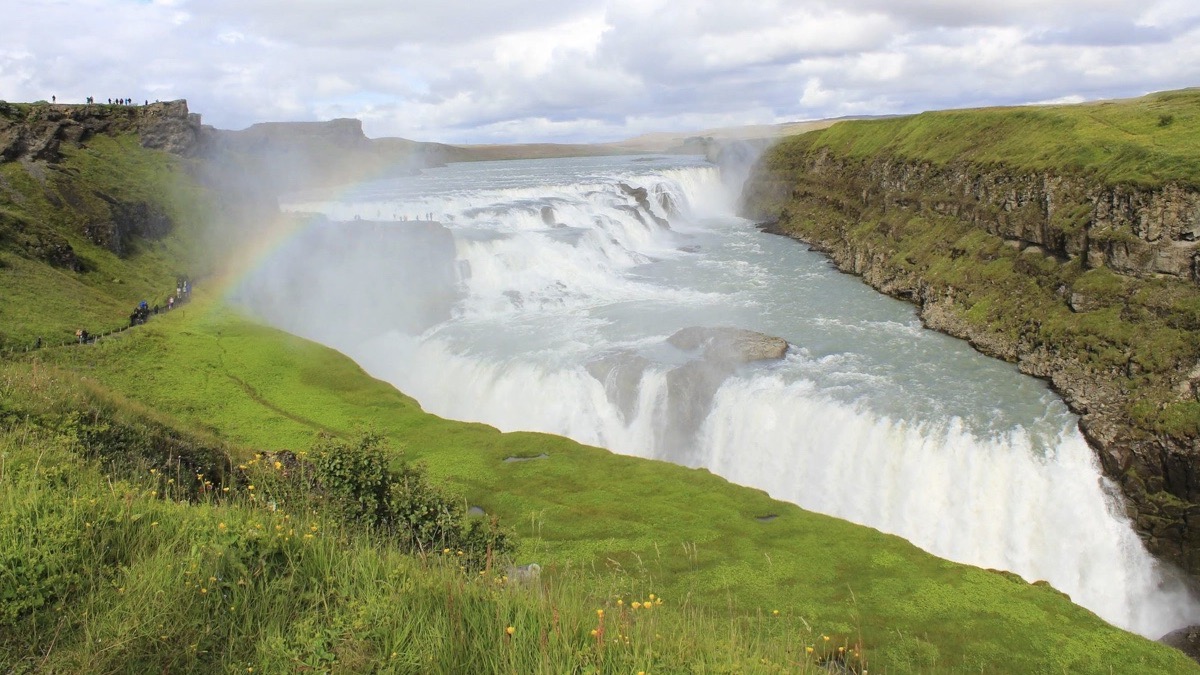
I could not afford to travel so extensively and so frequently unless I used points. The retail value of my itinerary runs at over $21,000 plus taxes per person, and this is where Qantas’ oneworld Classic Flight Reward comes in handy, allowing you to mix and match oneworld airlines across multi-stop itineraries.
Read our guide to Qantas round-the-world redemptions.
Accumulating the points
My friends constantly ask ‘How do you do this?’, generally with a tone of disbelief. The answer is: ‘easy, but…’
I operate a small business, so have the huge benefit of paying tax using a credit card (including the GST I collect on behalf of the Australian Tax Office). This is gradually getting more difficult as the card providers continue to wind back from paying points on government transactions.
Two viable options are the American Express Platinum Business and RewardPay.
In the future, I will redeem Cathay Pacific Asia Miles to secure itineraries like this, as it works out cheaper.
I also picked up a big credit card sign-up bonus by upgrading my David Jones American Express card to an American Express Platinum Card. The latter is, along with the Business version of the card, the only American Express card that allows you to transfer your American Express Membership Rewards points to Qantas Points.
I beefed up my Qantas Points with a sign-up bonus to Qantas Business Rewards, some bonus points for purchases using the Qantas Online Mall, as well as my normal everyday household expenditure.
Like George Clooney says in Up in The Air, ‘I don’t spend a cent unless it profits my frequent flyer account.’
How I booked my oneworld Classic Flight Reward
Bevan teaches us that it takes a lot of planning, patience and practice to book your dream trip.
Planning, planning and more planning
It takes a lot of planning to research routes and flights. The oneworld Where We Fly interactive map is a great tool for inspiration.
I plan in excess of twelve months before the next trip. I realise not every traveller wants everything so tightly organised, or is willing to plan so far in advance. However, this is the trade-off for flying with points, especially at the pointy end of the plane.
Usually, the most award availability opens just under a year out from departure, or in the 1-2 weeks just before a flight.
Know the product
To make the most of your itinerary, ensure you know the rules of redeeming a oneworld Classic Flight Reward, including understanding stopovers (over 24 hours) compared to transfers (under 24 hours), surface sectors, mileage thresholds and direction of travel.
For example, it is a common misconception that you have to travel in one direction when using this reward. In reality, you can travel in any direction you like provided you use the right combination of airlines and comply with the maximum stops, transfers and surface sector rules. That’s what I did.
Here is how my itinerary complied with this particular award’s conditions:
- Less than 35,000 miles: Great Circle Mapper calculates this itinerary as 26,537 miles, well within the range. Note: booking this itinerary using Cathay Pacific Asia Miles would have saved me 90,000 points – I know where all my American Express Membership Rewards points are going from now on!
- Five stopovers (over 24 hours): Osaka, Zurich, Reykjavik, London (second time) and Hong Kong
- Transfers (less than 24 hours): Hong Kong, Helsinki and London (first time), permitted because I departed each city within 24 hours of arriving
- Two surface sectors: Zurich to Gothenburg, and London to Barcelona
- At least two oneworld alliance airlines other than Qantas: Cathay Pacific, Finnair and British Airways. Note: I could have flown from Sydney to Hong Kong on Cathay Pacific and avoided Qantas completely, which is permitted under this award
Be flexible
When travelling to or from Europe on oneworld airlines like Cathay Pacific and Japan Airlines, there is more seat availability via Hong Kong and Japan.
It is almost impossible to find two Business Class seats travelling through Dubai or Singapore with Qantas, even twelve months in advance. Remember, Emirates and Jetstar are not part of oneworld, so including them on your itinerary makes the ticket a Qantas Partner Reward, which costs more points.
You’ll also need to be flexible with timing and destinations. For example, you might have to travel out of Osaka instead of Tokyo to get to Europe on the day you want, or you might have to travel on a less preferred day if you are leaving from a specific location.

Practice, practice and more practice
I usually use the Qantas.com booking engine to run trial bookings with hypothetical dates. This lets me test likely seat availability and also provides an estimate on taxes and fees.
For example, despite extra fuel surcharge of $100 per ticket, I chose to fly Qantas instead of Cathay Pacific out of Sydney in order to sit upstairs in the bubble of the 747. I would not have known this without the trial bookings.
Be aware the Qantas site does not show all Qatar Airways award flights or any Japan Airlines redemption seats. The site is also really bad in the fact that it shows combined Business and Economy seats as a Business Class award.
I use AwardNexus, British Airways Executive Club (I signed up using the address of a London hotel!) and JAL Mileage Bank as a backup to test for apparent lack of availability or phantom seats.




Book early
Once you have your itinerary locked down, book as soon as availability opens – in general, for Qantas, this is 353 days before the last flight in the itinerary.
This is why trial bookings are useful as you can adjust your itinerary for known availability beforehand.
My experiences with the flights and lounges
This case study wraps up with a look at Bevan’s experiences with some of the flights and lounges on his trip to Europe and Asia.
Sydney to Hong Kong on Qantas’ Boeing 747
Qantas’ Business Class seat provides plenty of legroom and the privacy shell is cosy without being claustrophobic. There are plenty of nooks and spaces for mobile phones, reading glasses and other paraphernalia.
Upstairs on the 747, the curvature of the fuselage provides extra storage space right by the seat.
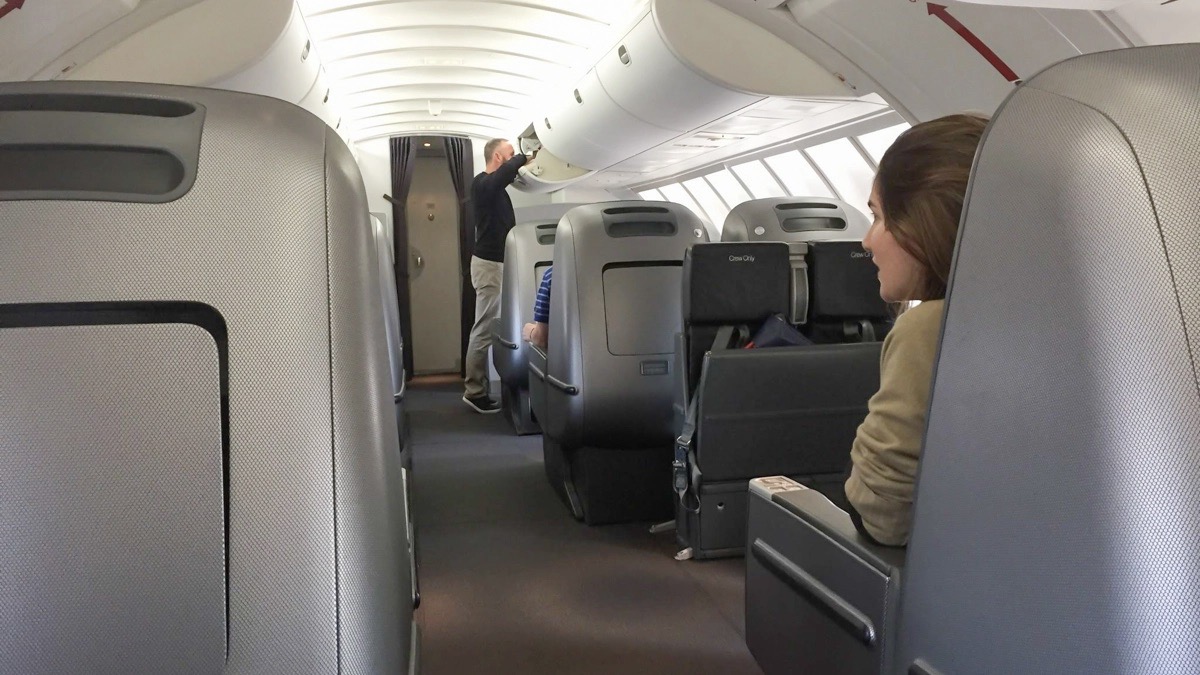
Unfortunately, the much hyped Neil Perry food was disappointing. The cabin crew were a little stressed and overworked on this full flight, continually offering bread and cakes to my gluten-intolerant partner.
Read more in our review of Qantas 747 Business Class.
Osaka to Helsinki on Finnair’s Airbus A330
This was the best flight of our trip in terms of seat comfort and service. The plane was an older A330 as Finnair has not upgraded this flight to the A350 yet. The A330 employs an alternating 1-2-2 configuration, which provides plenty of room.
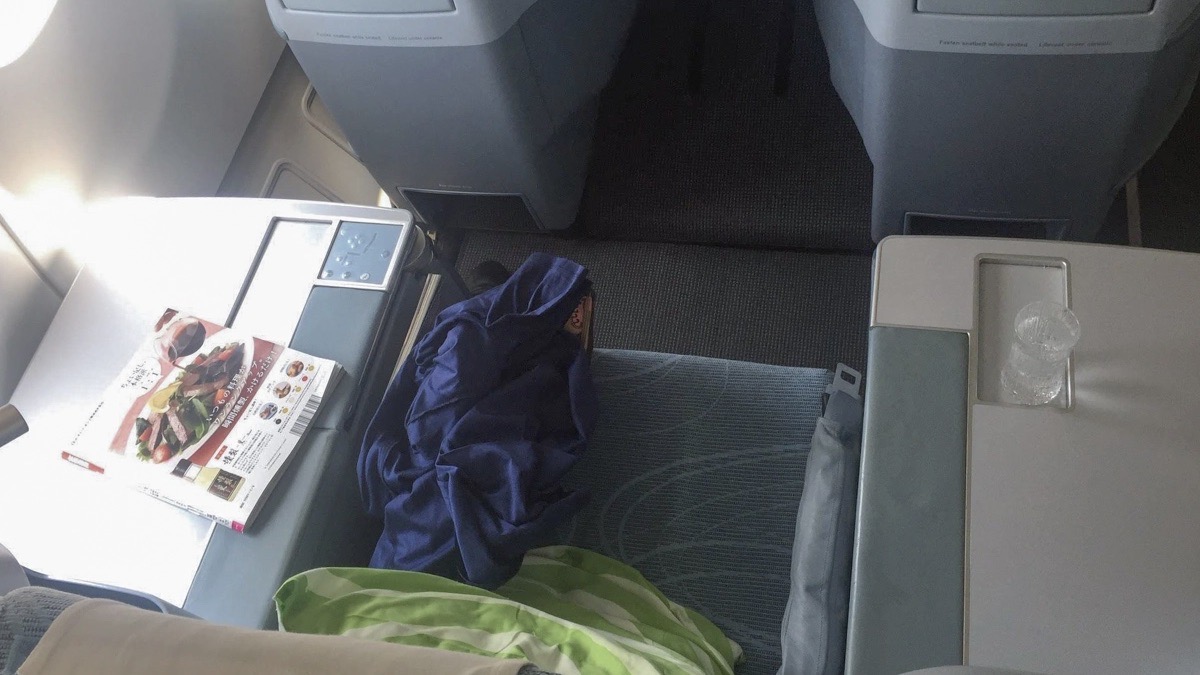
The seat becomes lie-flat with your feet extending underneath the armrest of the seat in front. There was plenty of room for my 183cm frame; even in the footwell, I could not touch the end and was able to easily turn over without whacking my ankles or knees against the partitions.
Indeed, the lie-flat seat was so comfortable I did not watch any video on the entire nine-hour flight.
Nordic style abounds on Finnair, from the Marimekko crockery and iittala glassware, to the Marimekko bed linen and amenity pack.
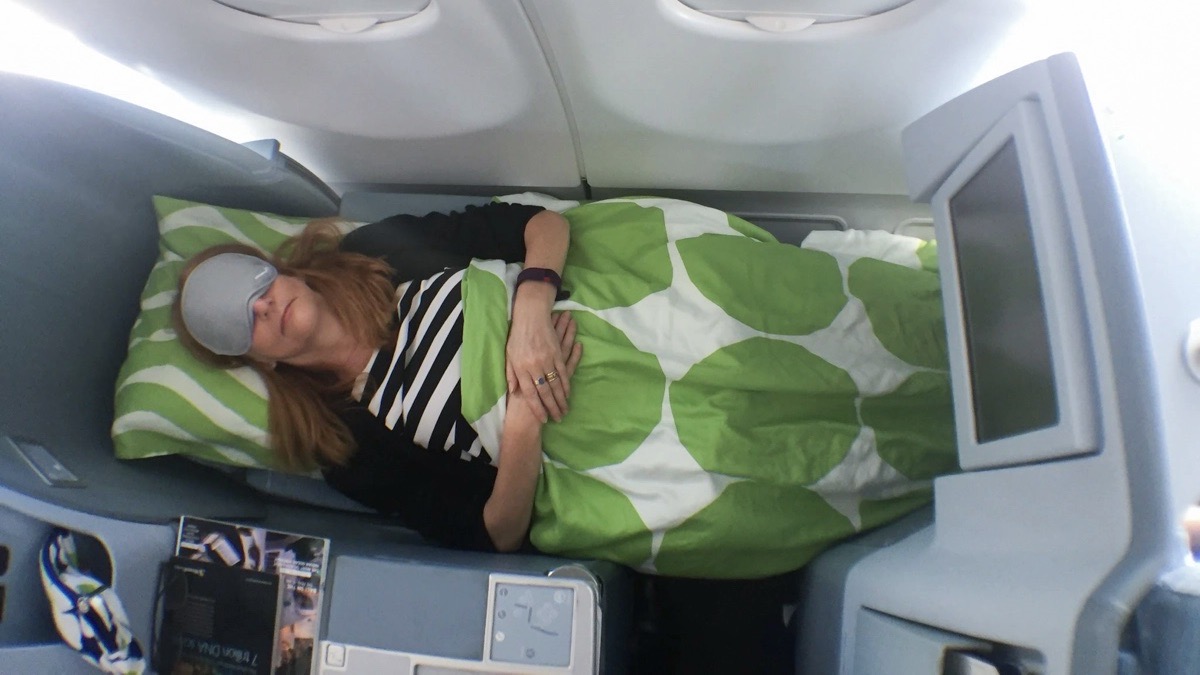
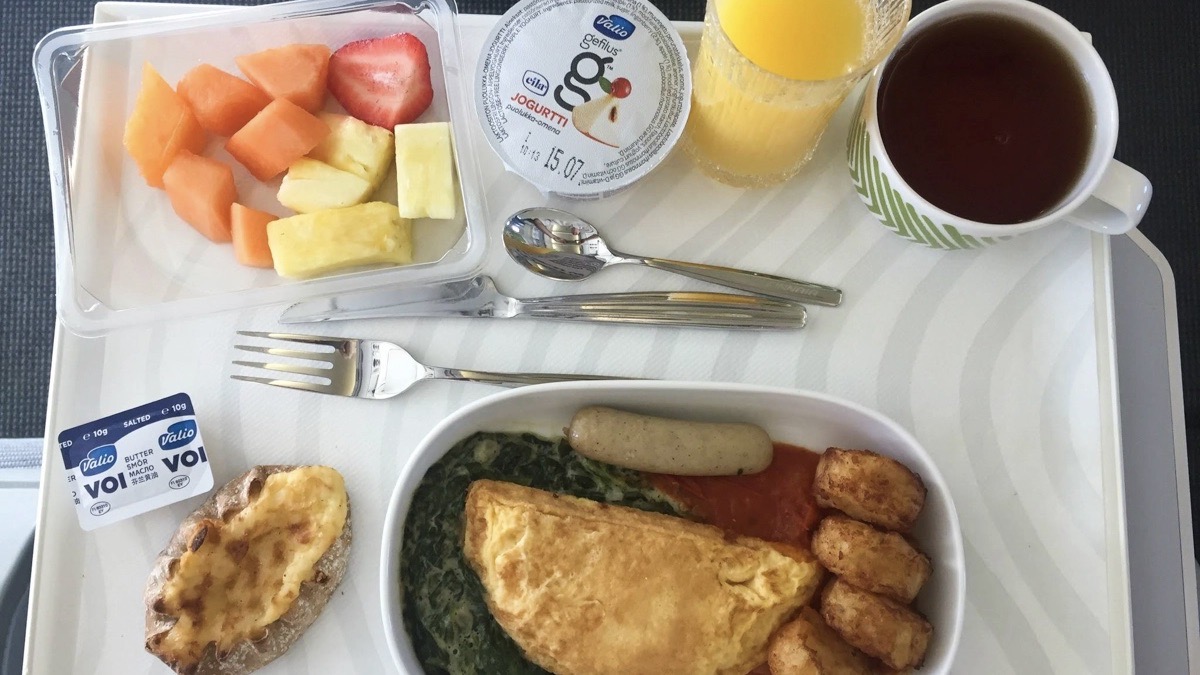
We were arriving into Helsinki on the day of the midsummer festival and chatted with cabin staff about things to do. We were particularly impressed when the steward returned with a full page of handwritten notes on locations to visit, tours to take, distances from our hotel and even prices. This was above and beyond the call of duty.
Transiting to Zurich the next day, unfortunately, I could not experience the sauna in the Finnair lounge, as that is located in the non-Schengen departures area.
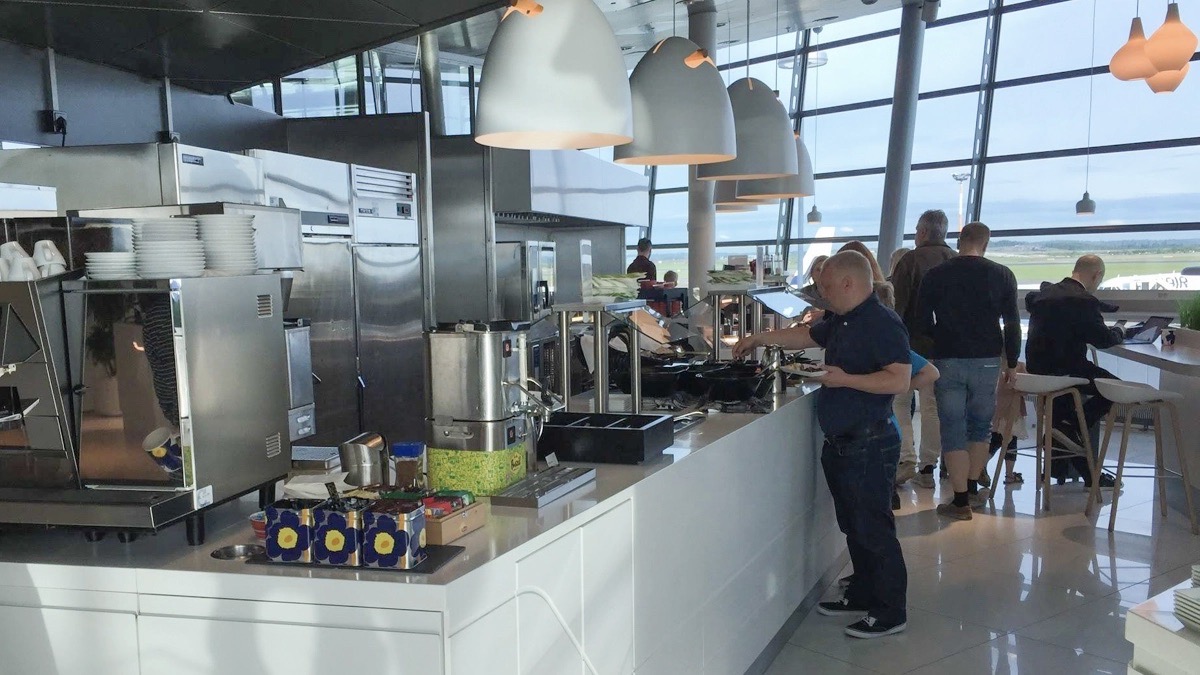
We thoroughly enjoyed our flight with Finnair and they backed it up again the next day on the leg to Zurich. I am looking forward to flying the A350 when Finnair deploys it routes to Asia.
Intra-European legs on British Airways
To get to and from Reyjavik, we had to fly British Airways through London Heathrow.
This flight only operates five times a week and the plane departs Heathrow at 8am, so I took advantage of the transfer rule to book an overnight stay at the Sofitel Heathrow. The hotel is a short undercover walk from Terminal 5 and is good for a late-night arrival or early-morning departure but otherwise it is a lot of money for what you get.
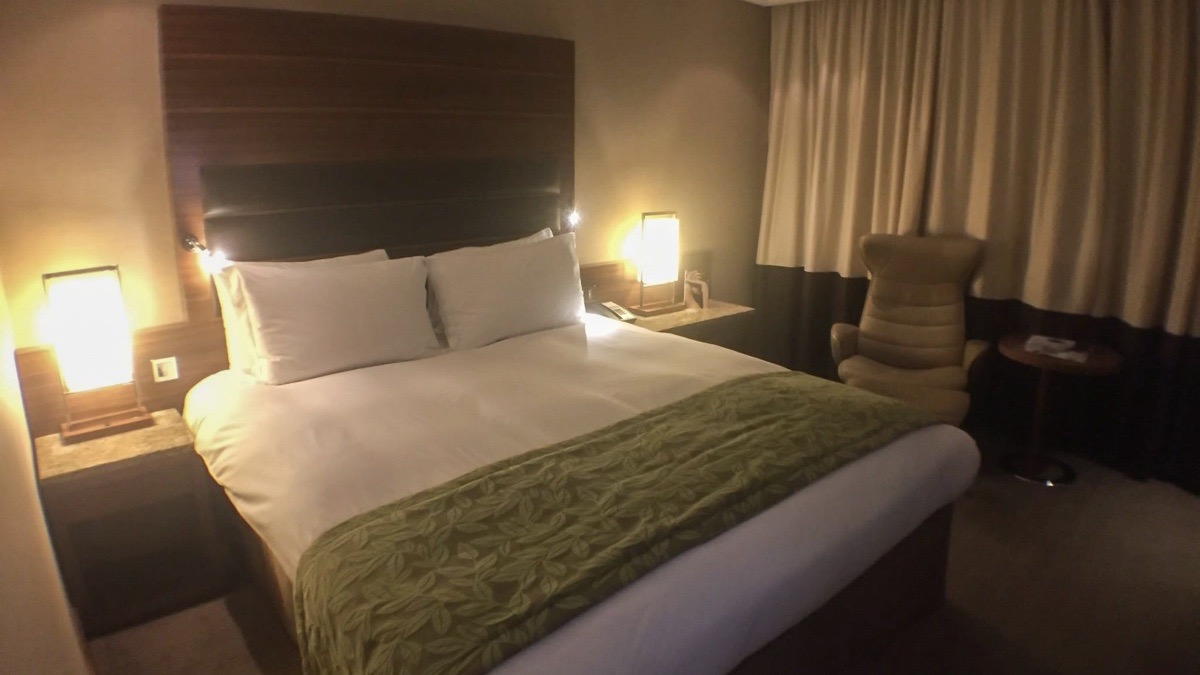
Business Class on short-haul European flights is just Economy with the middle seat spare, and free food and drinks. These were three-hour flights, on which we were served a tolerable but bland lunch. There is no onboard entertainment system – only the flight map.
London to Hong Kong on British Airways’ Boeing 777
This configuration is highly ‘efficient’, cramming in eight seats per row on all wide-body aircraft, except for the 787 which has one less seat in the middle. To make this work, four seats in each row face backwards.
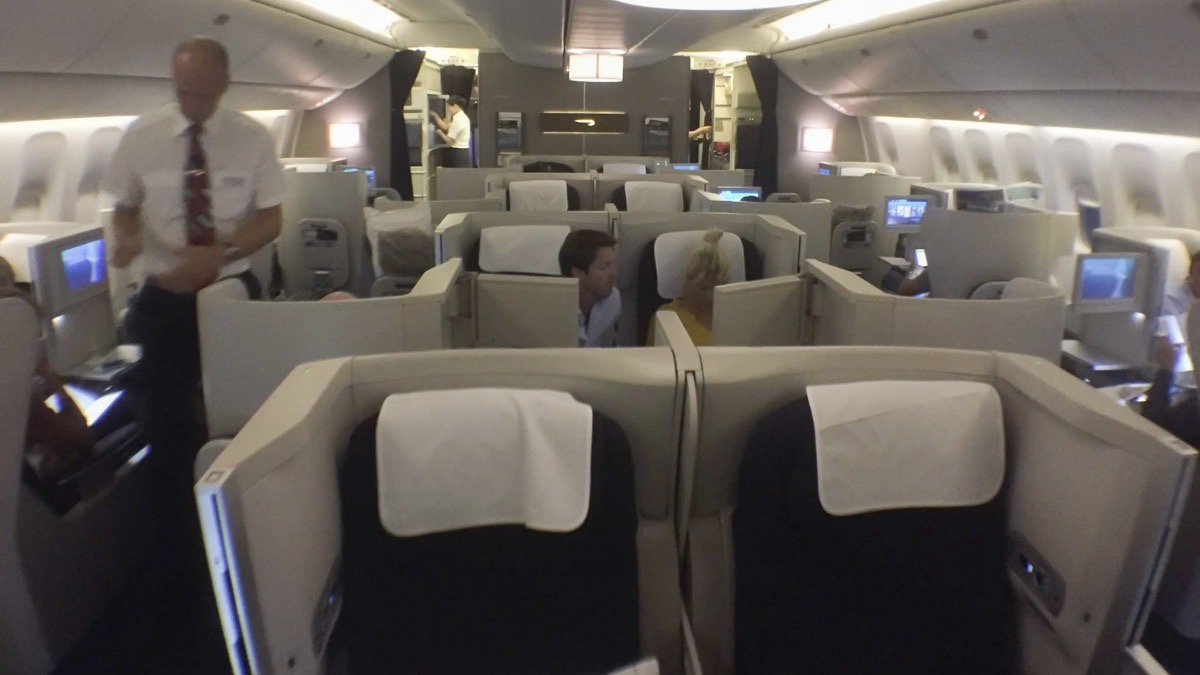
My partner and I had two middle seats and it was a little disconcerting to be facing the ‘wrong’ way, especially when taxiing, however, high partitions surround all the seats, making the middle section almost like a private nest.
Once the seats fold out, it is almost like a double bed, with only a small partition between our heads. Having said that, this seating arrangement would be a little too intimate if one were seated next to a stranger.
The downside of this configuration is that backward-facing seats like ours do not have direct aisle access. One has to squeeze between a narrow gap in the partitions and, if the neighbour has the bed extended, then step over their feet to get to the aisle.
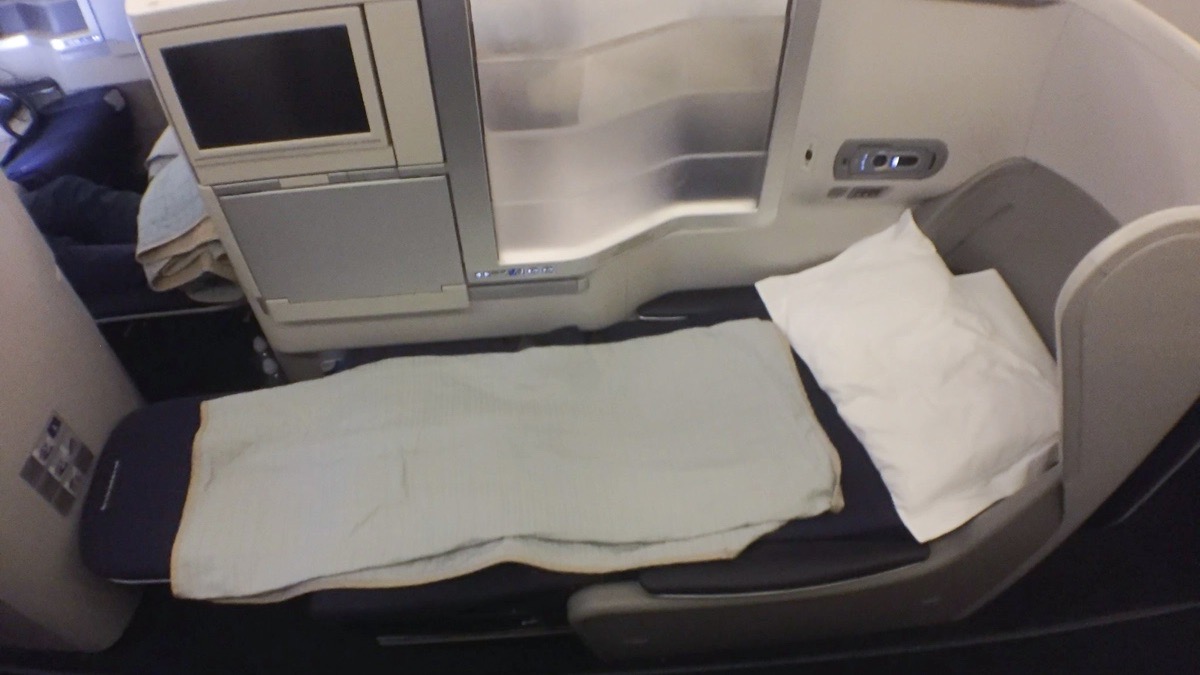
Luckily on our flight, the cabin was only half full, so passengers re-arranged themselves to avoid disturbance, however, this would be a different matter if the flight was full.
Cabin crew need to lower the privacy screen in order to serve food and drinks, meaning they lean right over your neighbour facing the aisle. If I was sitting in one of those seats, I would find that extremely annoying.
From the menu, the food sounded good, however, we found the food on almost all of the BA flights we took to be overcooked, uninspiring and lacking taste. It seems British Airways is caught up in a race to the bottom with low-cost carriers.
Breakfast on this flight was a watery, uninspiring traditional English meal – it is curious that a British airline is unable to put together a proper English breakfast.
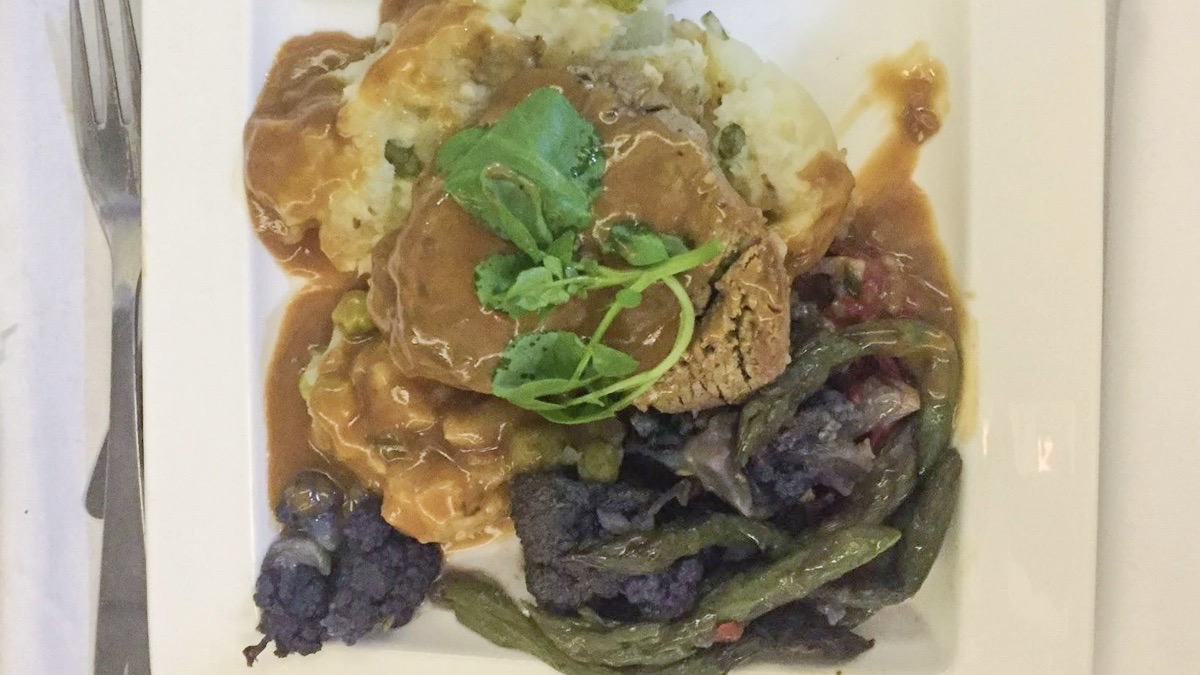
Despite the poor quality of food, I actually had a great flight.
The cabin crew service was impeccable – they delivered and cleared the food quickly to leave as much time as possible for sleep. The staff were also so attentive that they remembered what type of tea we liked and woke us gently when breakfast was served.
The bed was really comfortable and I managed about six hours of reasonably deep slumber, arriving in Hong Kong refreshed, despite the seven-hour time difference.
Having said that, next time I will try to organise an itinerary which flies Finnair, Cathay Pacific or perhaps even Qatar Airways to get out of Europe.
Heathrow Terminal 5 Aspire Spa and Lounge
This lounge is a welcome retreat from the frenetic hustle and bustle of the main terminal. However, it is small and given the sheer volume of flights, is probably crowded most of the time (it certainly when we visited during the busy summer holidays). However, good food and friendly, conscientious staff compensate for this shortcoming.
We entered this lounge for free due to the Priority Pass membership that comes with my American Express Platinum Charge card.
The lounge opened in 2015 and about a third of this space is occupied by a spa and showers, so there is not much room left over for chairs and tables.
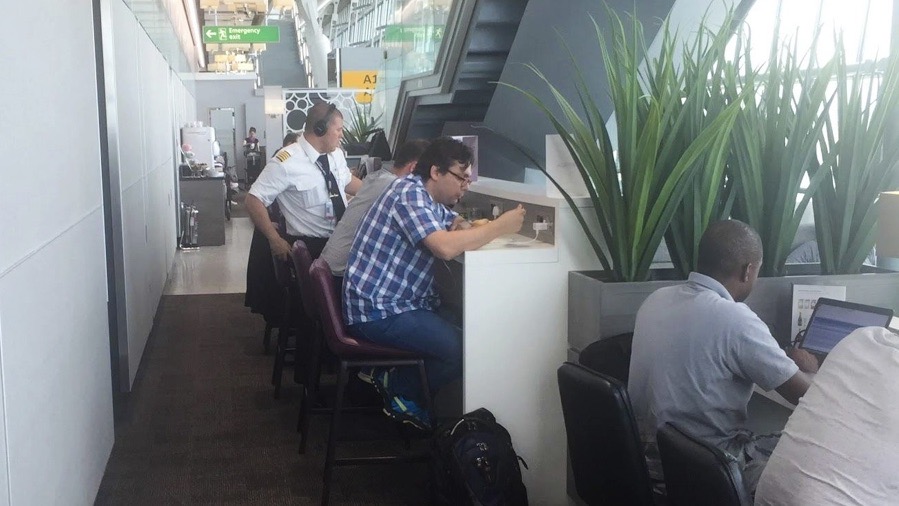
The lounge staff were friendly and helpful but clearly very busy trying to service the lounge but that did not stop one of them from exceeding our expectations. We were settled in sharing seating with some other travellers (without necessarily being comfortable) when one of the attendants approached and offered to move us to some vacant seats.
It took us a few moments to gather up all our belongings, during which time they stood guard by the vacant seats until we arrived. We then had a very comfortable two hours relaxing in deep easy chairs and were very grateful.
As the lounge was full, the food emptied quickly but was regularly replaced, meaning the food was fresh and quite tasty.
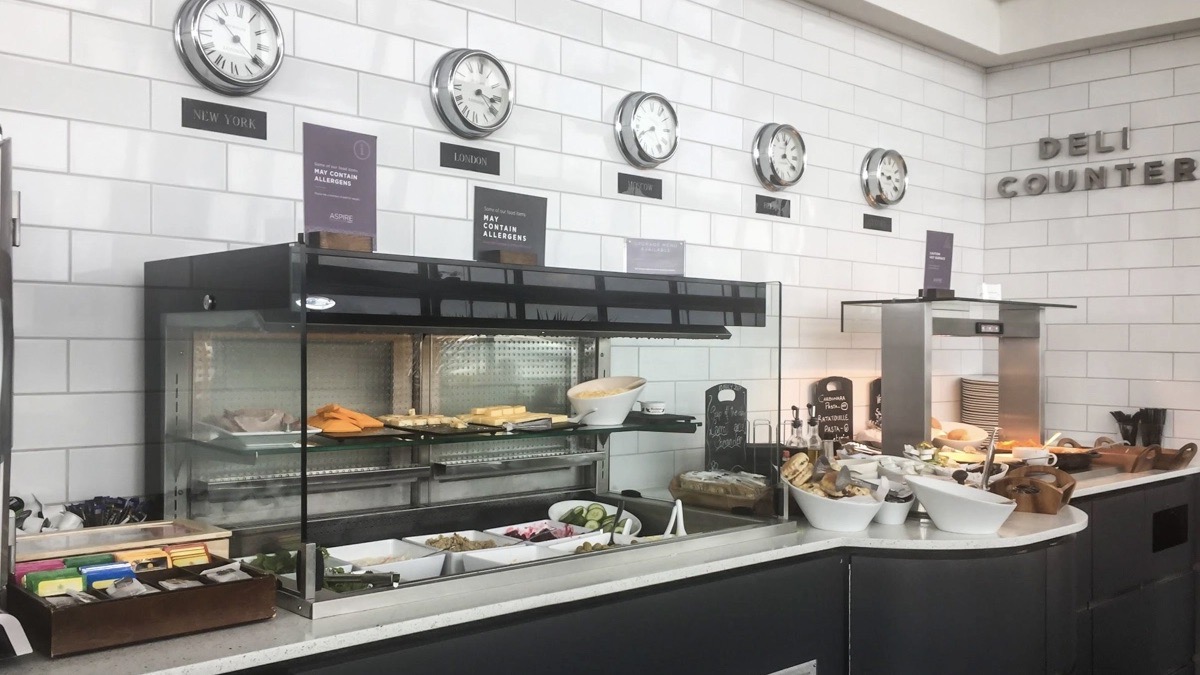
Spa services and showers are available between 9am and 5pm at an additional cost.
The sister lounge in Terminal 3 is one of the best shared lounges I’ve ever visited.
Summing up
I am lucky that I can direct business expenditure to my cards, which increases my frequent flyer balances. However, I also keep my eye out for bonus points promotions to strengthen my accounts.
Flexible points currencies like American Express Membership Rewards points give me the best opportunity to transfer my points for maximum value.
Advanced points redemptions like this one do require a lot of planning though, often more than a year in advance. My advice is to research each segment individually and piece them together to complete the trip.
I have flown similar legs to my itinerary previously in Economy. This time I noticed a significant reduction in jet lag after having a decent sleep on the flight. Indeed, the Business Class seats on all flights were so comfortable that I barely used any inflight entertainment.
After Business Class, I can probably never go back to Economy for long-haul flights. I do not put a great priority on the food and drinks but lie-flat beds cannot be beaten when spending so many hours in the air.
Other case studies
- Read how Warren earned and used points for Business Class during their honeymoon
- Read how Martina used points to go backpacking in Latin America
- Read how Matt booked a trip around The Pacific for 200,000 points
Supplementary images courtesy Global Circle Mapper and hotflick.net.

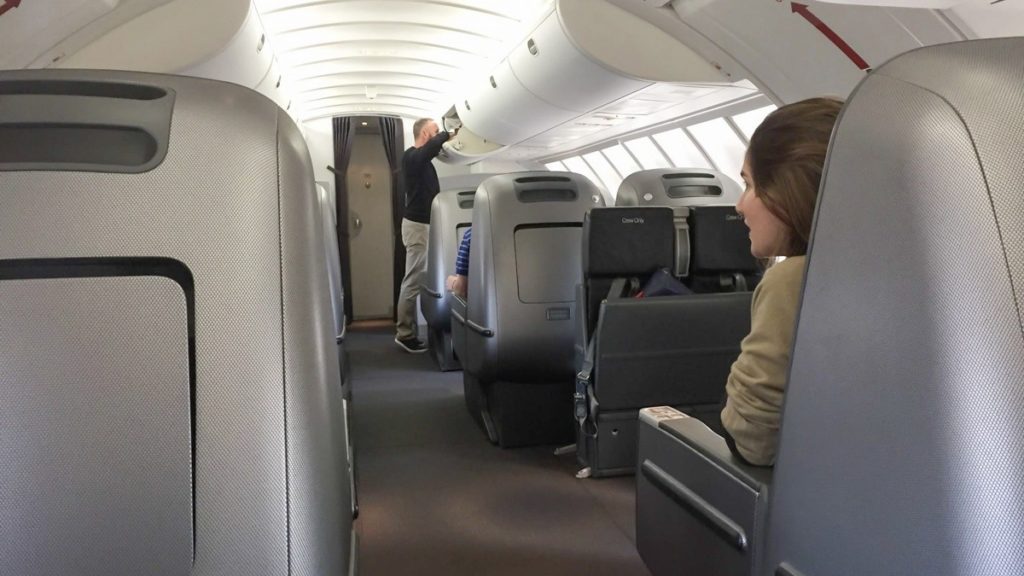
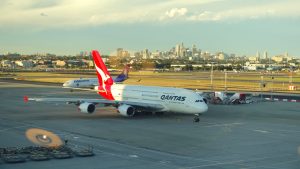
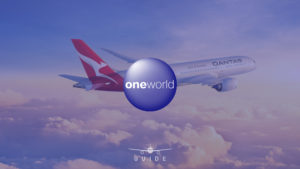
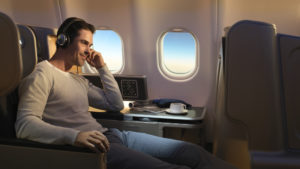
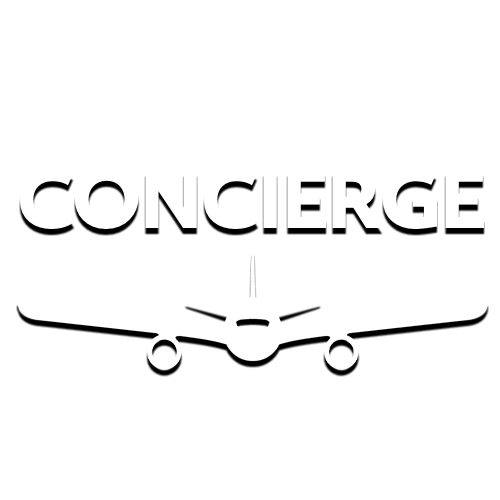
Community